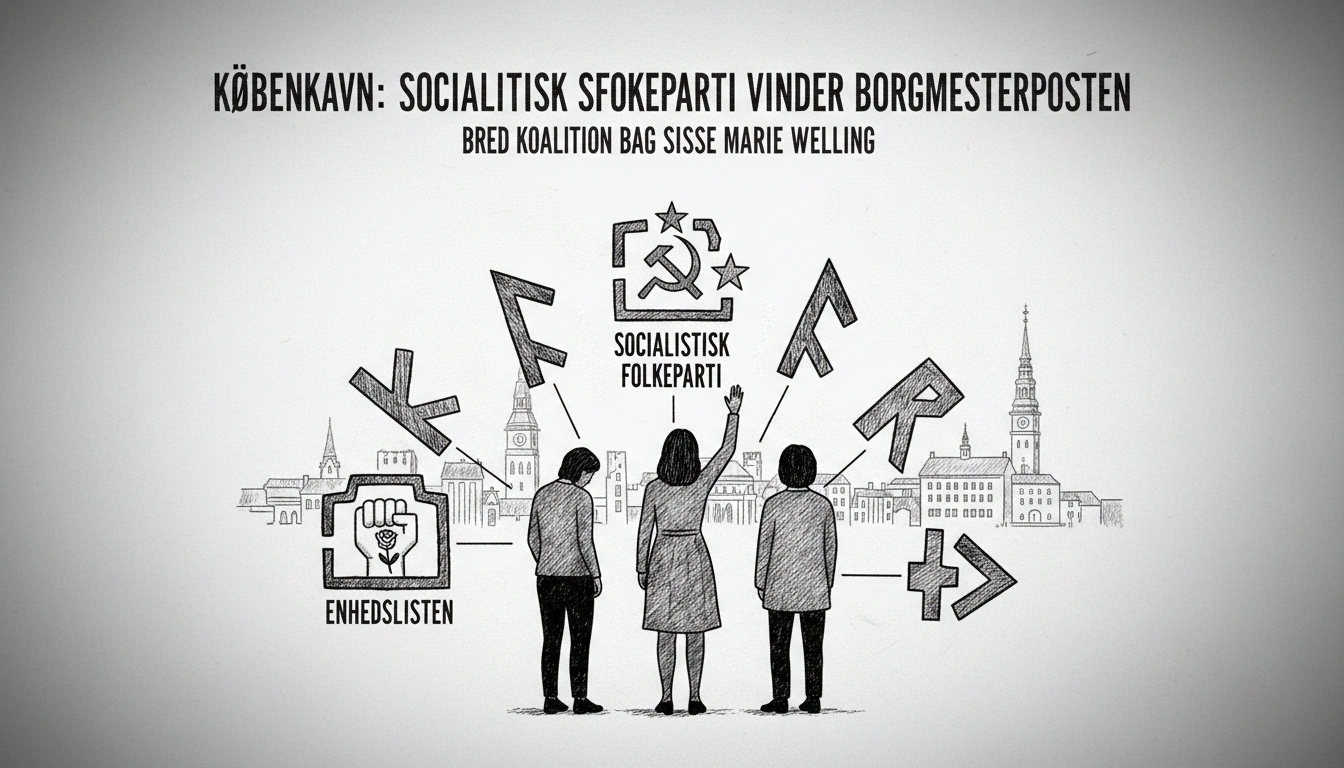Copenhagen will have a new mayor from the Socialist People's Party after coalition negotiations. Line Barfod from the Red-Green Alliance failed to secure the position despite her party winning the most votes in the municipal election.
The Red-Green Alliance received 22.1 percent of votes in Copenhagen. The Socialist People's Party came second with 17.9 percent. Barfod acknowledged she could not gather majority support for her candidacy.
I would have very much liked to get the position, Barfod said at a Wednesday press conference at Copenhagen City Hall. The Red-Green Alliance declined slightly. We remain the largest party in Copenhagen, but we also needed a majority behind us. That is crucial in a democracy.
The mayor position went to Sisse Marie Welling from the Socialist People's Party. This outcome demonstrates how Danish municipal politics requires broad coalition building. Even the largest party cannot govern alone without support from others.
Eight parties joined the extensive coalition formation in Copenhagen. The agreement includes the Red-Green Alliance, Socialist People's Party, the Alternative, the Social Liberals, Liberal Alliance, the Conservatives, the Liberals, and the Danish People's Party.
Liberal Alliance specifically opposed Barfod's mayoral candidacy. Alexander Ryle from Liberal Alliance explained their position at the press conference. When the choice stood between the Red-Green Alliance and the Socialist People's Party, we chose to put our support behind SF. I have said throughout the election campaign that we would not make the Red-Green Alliance mayor.
This political dynamic reflects Copenhagen's progressive but pragmatic political landscape. The city consistently elects left-leaning majorities but requires compromise across party lines. The outcome shows that even popular parties must negotiate and build consensus in Denmark's proportional representation system.
International observers might find this coalition-building process familiar from other Nordic countries. Similar multi-party negotiations regularly occur in Sweden, Norway, and Finland following elections. The Danish model emphasizes broad agreement rather than winner-takes-all outcomes.
For Copenhagen residents, the new coalition means continued progressive policies with potentially more moderate implementation. The city faces challenges including housing affordability, climate adaptation, and transportation infrastructure. The broad coalition suggests these issues will be addressed through compromise rather than ideological purity.
The mayor position holds significant influence over Denmark's capital city development projects. The role involves overseeing urban planning, public services, and representing Copenhagen internationally. Welling will now shape the city's direction for the coming political term.

